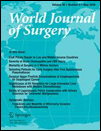Measuring Outcomes of Laparoscopic Anti-reflux Surgery: Quality of Life Versus Symptom Scores?
Abstract
Introduction
Outcome following fundoplication for gastroesophageal reflux can be measured using objective tests, symptom scores and quality of life (QoL) measures. Which is best and how these assessments correlate is uncertain. To determine the utility of assessment measures we compared a general QoL measure (SF-36) and a disease-specific measure (GERD-hr-QoL) with symptom and satisfaction scores in individuals following fundoplication.
Methods
329 individuals underwent fundoplication between 2000 and 2015 in 2 centres in Australia and the Netherlands. Patients were assessed before and 3, 12 and 24 months after surgery using 10-point Likert scales to assess heartburn and satisfaction, the SF-36 questionnaire and the GERD-hr-QoL questionnaire. SF-36 scores were converted into component scores: Physical Component Scale (PCS) score and Mental Component Scale (MCS) score. Correlations between QoL measures and clinical outcomes were determined.
Results
Surgery relieved heartburn (7.0 vs. 0.0 median, P < 0.001) and patients were highly satisfied with the outcome (median 9.0). PCS and MCS scores improved after surgery (PCS 40.9 vs. 46.0, P < 0.001; MCS 47.6 vs. 50.3, P = 0.027). GERD-hr-QoL scores also improved after surgery (15.7 vs. 3.7, P < 0.001). Correlations between PCS and MCS scores versus heartburn and satisfaction scores were generally weak or absent. However, correlations between GERD-hr-QoL versus heartburn and satisfaction scores were moderate to strong.
Conclusion
Despite improvements in scores, the SF-36 correlated poorly with clinical outcome measures, and its use to measure outcome following fundoplication is questioned. However, the GERD-hr-QoL correlated well with the symptom scores, suggesting this disease-specific QoL measure is a better tool for assessing anti-reflux surgery outcome.




